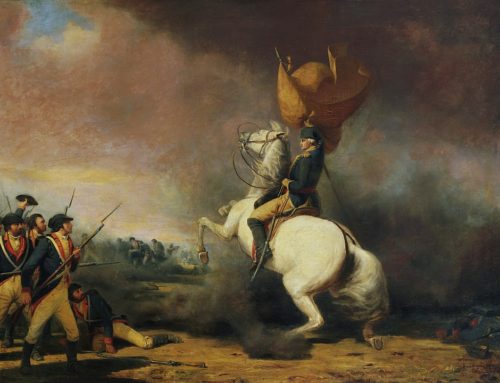Battle of Antietam
By James M. McPherson
I just finished an exciting book, written by James McPherson, America’s most eminent Civil War historian, about the Battle of Antietam, fought on September 17, 1862. The author makes the point that this battle might have been the most important engagement of the Civil War. That is, its domestic and political ramifications were far greater than Gettysburg. The battle was the bloodiest single day in American history, with more than 6,000 soldiers killed—four times the number lost on D-Day and twice the number killed in the September 11th terrorist attacks.
The author provides a thrilling account of this pivotal battle, the events that let up to it, and its aftermath. In brief, the Union army and Northern population were demoralized prior to Antietam. The Confederates under the leadership of Robert E. Lee and Stonewall Jackson decided to invade the North, specifically Western Maryland, to further demoralize the North and gain political recognition by France and Great Britain. That is, both France and Great Britain were preparing to pressure Lincoln into negotiating with the South, with the inevitable result of secession. On the other hand, Lincoln was waiting for a major military victory to announce the Emancipation Proclamation, freeing the Negroes in that part of the country that was currently in secession. The international impact of Emancipation was that most workers in Great Britain favored the North, believing that slavery was a threat to their working rights. Thus, Emancipation effectively prevented the British government from taking steps to recognize the South, given the sentiment of the working classes. Without British support, Napoleon III of France would not recognize the South. Lastly, the victory of Antietam assured Republican continued control in the House of Representatives and the Senate, thereby preventing a pacifist Democratic Party from stalemating Lincoln’s war policy. In key house races after the Antietam victory, the Republican margin of victory was only 1%. The narrow Republican victories indicate clearly that a Northern defeat would have led to an impasse between the Executive and Congressional branch of governments. That is, the peace Democrats would have stalemated Republican efforts to continue on a massive scale to support the necessary military efforts required to subdue the South. Stated differently, without the support of Congress, Lincoln would have been forced to negotiate a settlement with the Confederacy.
The Union commander, George McClellan played a mixed role in the Northern victory at Antietam. On the one hand, he reorganized and reinvigorated the Union army that was on the verge of mutiny following their defeats in Virginia. That is, McClellan’s charisma and organizational skills were a prerequisite for the Union effectively meeting the Southern invasion. On the other hand, McClellan failed to aggressively attack the outnumbered Lee, losing many opportunities to decisively defeat the Confederates and thereby end secession. Also, McClellan failed to follow up his victory by vigorously pursuing Lee back to Virginia, and thereby allowed Lee to reorganize the Northern Army of Virginia. McClellan’s unwillingness to use his army to crush Lee resulted in the Civil War continuing another two and half years.



